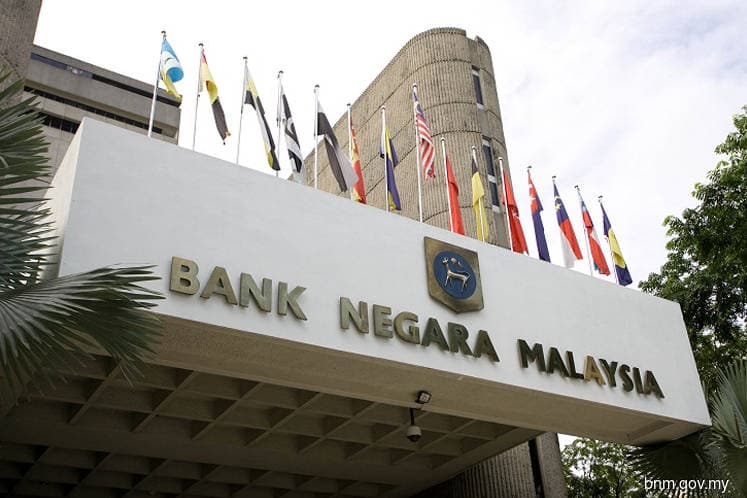
This article first appeared in The Edge Malaysia Weekly on December 18, 2017 - December 24, 2017
BANK Negara Malaysia’s decision to improve the transparency of cryptocurrencies has been welcomed as local interest in digital currencies grows, spurred by skyrocketing prices.
Last Thursday, the central bank issued an exposure draft on invoking reporting obligations for digital currency exchanges as reporting institutions under the Anti-Money Laundering, Anti-Terrorism Financing and Proceeds of Unlawful Activities Act 2001 (AMLA), which will come into force in early 2018.
The required disclosures include the number, value and purpose of transactions, the net buy and sell positions of the transactions, payment method and number of customer accounts.
“The purpose of this requirement is to provide transparency in dealing in digital currencies. Failure to observe the obligations will result in penalties under AMLA, with the exchange liable to a fine not exceeding RM1 million if no penalty is specifically expressed.
“The bank may publish information and data submitted by the digital currency exchanges as it is important to give the public access to the necessary information to make an informed decision in line with the objective to make digital currencies transparent in Malaysia,” Bank Negara deputy governor Abdul Rasheed Ghaffour told a media briefing last Friday.
Other requirements include the appointment of a compliance officer and reporting of any suspicious transactions to the central bank.
Those in the digital currency space support the move, seeing it as a step forward for greater adoption and use of blockchain technology and cryptocurrencies in Malaysia.
HelloGold Sdn Bhd CEO Robin Lee says it is a sensible and rational approach, as he believes the country can benefit greatly from blockchain technology and cryptocurrency.
HelloGold is a Malaysia-based start-up offering micro transactions of gold from as little as RM1, utilising the Ethereum platform.
“The challenge is to harness the constructive power that the technology can bring while mitigating the risk of its abuse by bad actors,” he says.
While HelloGold is not an exchange, Lee says the company is already operating within the AMLA protocols, regardless of whether compliance is required.
Access Blockchain Association (Malaysia) says the move could eventually see regulated exchanges, which is vital to encourage the growth of the domestic digital currency ecosystem.
“These draft requirements will nurture the growth of such exchanges, so Malaysians will not have to resort to opaque, over-the-counter markets that are fraught with risks.
“Financially strong and technically secure, regulated exchanges will facilitate the assimilation of digital currencies and the underlying blockchain technology into relevant areas of the domestic economy,” says the association.
However, the central bank has made it clear that it is not taking a regulatory stance yet on cryptocurrencies and that the reporting obligations for exchanges do not mean it is endorsing their ownership.
The central bank does not consider cryptocurrencies legal tender, so businesses and consumers who use them to pay for products and services are not backed by any public institution. In addition, users will not be able to use the existing dispute resolution mechanisms in the event anything goes wrong.
“It is important to appreciate that [cryptocurrency] is not legal tender so it does not carry the backing of a public institution, and that is the essence of it. There are obviously risks for users that they must be aware of,” said Abdul Rasheed.
According to Bank Negara, about RM75 million in bitcoin and other cryptocurrencies are traded in Malaysia each month.
Inter-Pacific Securities Sdn Bhd research head Pong Teng Siew says it is necessary to get the cryptocurrency exchanges into the legal framework, but highlights that it does not address the issue of promoting these digital currencies as investments.
“Bank Negara’s move is absolutely necessary but it still does not address the issue of controlling these unregulated investments. A lot of people are promoting them as investment products, without regulatory oversight.
“For us — as analysts — the Securities Commission pores over our reports to ensure we have a basis for our recommendations. But investment in cryptocurrency is totally unregulated,” he says.
The central bank says the enforcement of reporting requirements is only the first step, with the bank to decide later on if it is necessary to impose regulations.
Abdul Rasheed said none of the central banks around the world have indicated they paln to impose any form of formal regulations on cryptocurrency traders.
“What we have seen so far is that most countries are moving to ensure that cryptocurrencies are not being used for money laundering and terrorist financing, similar to the approach we are taking.
“The idea is to try and understand the operations of cryptocurrencies. Once we gather more information, we will be able to determine whether regulation is necessary from a financial stability and consumer protection perspective,” he said.
Save by subscribing to us for your print and/or digital copy.
P/S: The Edge is also available on Apple's AppStore and Androids' Google Play.